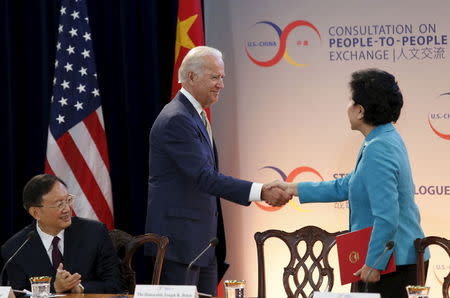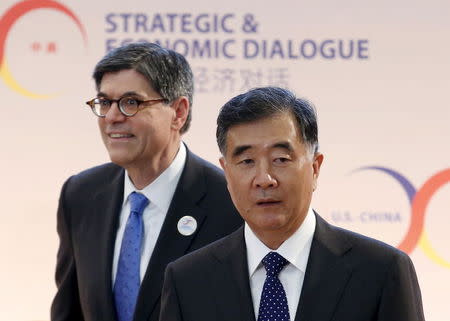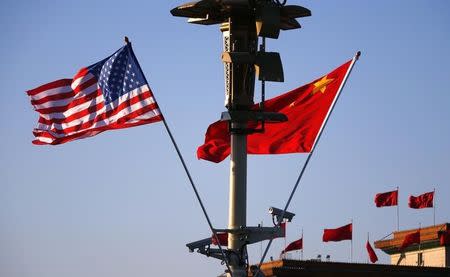U.S. airs deep concerns over cybersecurity in China meetings
By Jason Lange and David Brunnstrom WASHINGTON (Reuters) - The United States on Tuesday said cyber theft sponsored by the Chinese government was a major problem and stressed the need to keep Asian sea lanes open at annual talks with China. In opening statements at the wide-ranging Strategic and Economic Dialogue forum in Washington, both sides expressed a desire for constructive bilateral relations, with China saying the two countries could manage differences and should avoid confrontation. But tensions over security matters threatened to hamper efforts to deepen the massive economic ties between the two countries. China and the United States are negotiating a bilateral investment treaty. "On cyberspace, in particular, we remain deeply concerned about Chinese government-sponsored cyber-enabled theft," U.S. Treasury Secretary Jack Lew said during the forum. Lew said the targets of this hacking were U.S. companies and did not mention attacks on government computers in recent months that U.S. officials have blamed on Chinese hackers. The Cabinet-level meetings began on Monday with preliminary talks and a dinner and are slated to wrap up on Wednesday. Earlier on Tuesday, U.S. Vice President Joe Biden said that China and the United States might not resolve all of their differences during the sessions but should commit to working on them. "We have to keep at it, day after day after day after day," Biden said. China's Vice Premier Liu Yandong responded to Biden by saying that differences could be managed "as long as our two countries adopt an overall perspective, respect and accommodate each other’s core interests." The meetings come at a time of waning trust and widening differences between the United States and China, even though they maintain robust economic ties that last year were worth $590 billion in two-way trade. U.S. officials also worry about China's pursuit of territorial claims in the South China Sea, as well as Beijing's challenge to American dominance of global finance and restrictions on U.S. businesses in China. In the opening session, Lew also said it was critical for China to move toward a more market-oriented exchange rate, repeating a U.S. mantra even though the International Monetary Fund has said the yuan is no longer undervalued. More than 400 Chinese officials are in Washington for the talks, which involve eight U.S. Cabinet secretaries. They come at a time when U.S. President Barack Obama has worked to secure congressional backing for legislation needed to speed a 12-nation trade deal, which is the economic plank of his "pivot to Asia" policy intended as a counterweight to China's growing influence. The two sides will try to ease tensions by stressing areas of cooperation, including climate change, shared concerns about Iran and North Korea's nuclear programs, the fight against Islamist militancy, and support for global development. Despite considerable tension over some issues, China is hoping for a smooth set of meetings to prepare for a visit to Washington by President Xi Jinping in September. (Reporting by Lesley Wroughton, Idrees Ali and Arshad Mohammed; Editing by Jonathan Oatis)




